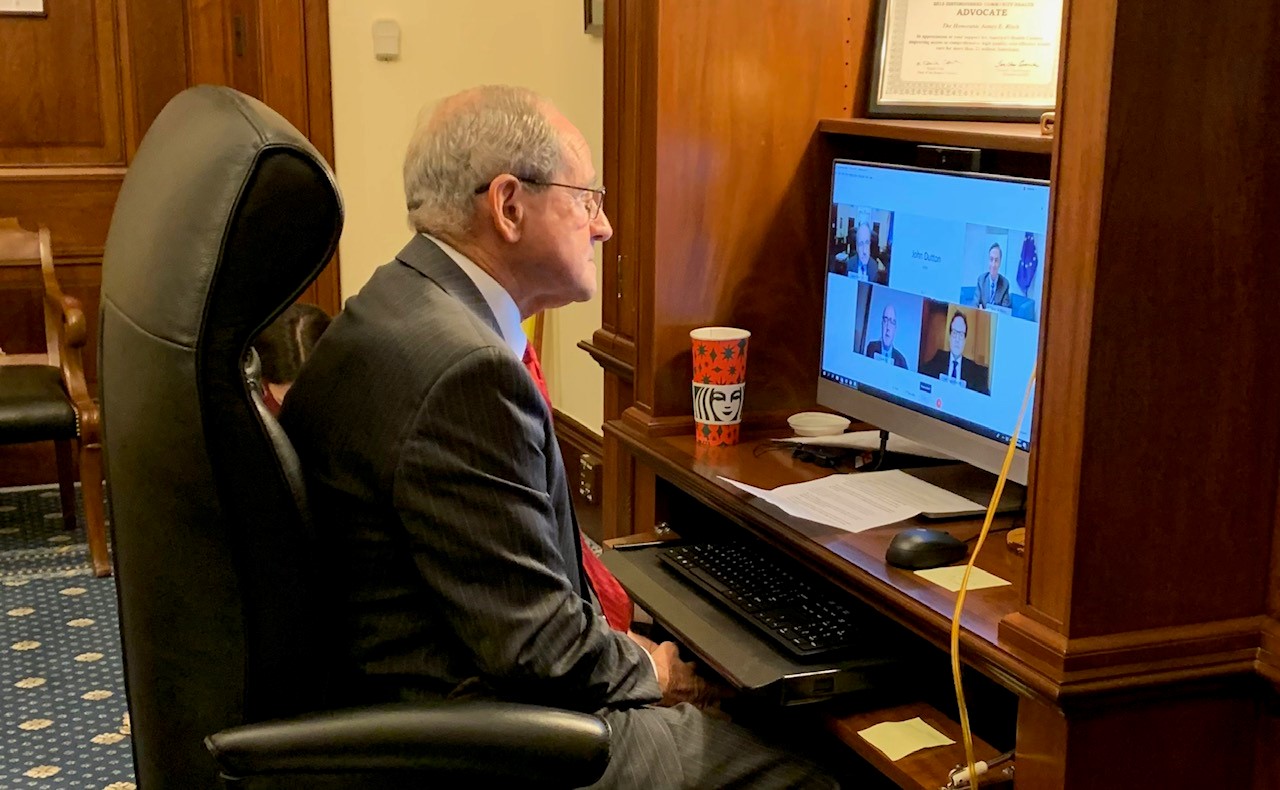ICYMI: Chairman Risch Discusses Greater Transatlantic Cooperation on China with EU, U.K. Parliamentarians
WASHINGTON – U.S. Senator Jim Risch (R-Idaho), chairman of the Senate Foreign Relations Committee, today convened a virtual event with Member of European Parliament David McAllister, chair of the European Parliament’s Committee on Foreign Affairs, and Member of Parliament Tom Tugendhat, chair of the Foreign Affairs Committee of the Parliament of the United Kingdom, to mark the release of his new report, “The United States and Europe: A Concrete Agenda for Transatlantic Cooperation on China.”
The report was commissioned by Chairman Risch to advance greater collaboration between the United States and Europe on the challenges posed by China. It examines China’s increasing attempts to undermine prosperity, security, and good governance in every region of the globe, and offers recommendations for greater transatlantic cooperation to respond to these challenges.
Click here to watch the event recording on YouTube.
Click here to download the video file.
Chairman Risch gave the following opening remarks at the top of the event:
“Throughout my years in the Senate, I have advocated for close ties between the United States and Europe, and will continue to do so. For decades, the transatlantic alliance has worked to address challenges ranging from defense to arms control, to trade, to human rights. Of course we have some differences but those are always greatly exaggerated by those motivated to do so.
“However, mostly underreported is the fact that together, over many years, we have created and advanced the modern institutions that provide a quality of governance and life the world has never seen including, of course, NATO, the most successful cultural and military alliance in the world. These efforts have been crucial to helping ensure a free and open international system that is defined by free market economic growth, individual freedom, the rule of law, and collective security.
“Today, the most consequential challenge to these shared interests and values is the People’s Republic of China, led by the Chinese Communist Party.
“China aims to undermine the fundamental security and integrity of our democratic societies through malign influence in our media, education systems, international organizations, and even local governments. Its ecosystem of anti-competitive economic policies hurts U.S. and European businesses, and risks the prosperity created by market-driven growth. At the same time, the People’s Liberation Army is aggressively expanding its power to become a global force, co-opting China’s overseas commercial activity for military purposes, and coercing its neighbors into doing its bidding.
“China has become a true systemic rival to shared American and European interests. Both sides of the Atlantic increasingly recognize this reality. Now, we have to turn this agreement into action. Neither the United States nor Europe will be able to combat these threats alone. Those who suggest that possibility are simply wrong. China is simply too large and too well equipped.
“This important work has already begun. We are better prepared to safeguard critical assets and technologies from state-directed investment. We have come together at the UN to stand up for the rights of the Chinese people. And we have advanced shared principles on secure future telecommunications networks. The United States and the European Union have established a formal dialogue on China, and NATO is increasing its focus on the threat as well.
“But this is just the beginning. This challenge requires a shared and sustained commitment over the long term. Countries on both sides of the Atlantic must commit to prioritizing China as a major issue in our respective foreign and economic policies since our objectives are so different with China.
“Perhaps more importantly, we have to commit to partnering with each other, even when we disagree. To help us strengthen these commitments, I am proud today to announce the publication of a new SFRC report, entitled “The United States and Europe: A Concrete Agenda for Transatlantic Cooperation on China.” It is lengthy, but it is detailed. And those details are important.
“The report recommends:
- safeguarding our free and open societies from a new authoritarian advance,
- upholding the integrity of international organizations,
- combatting unfair trade practices and anti-competitive economic statecraft,
- developing new technologies and shape how they are used,
- addressing the economic and security implications of PRC investment through the “One Belt, One Road” initiative,
- and deepening transatlantic partnership in Africa and the Indo-Pacific.
“It is clear the PRC is making inroads in all of these areas, and that the United States and Europe will be worse off if we take on these challenges individually. Cooperation is therefore key to protecting our shared values and interests. Legislators like ourselves must play a role in both bringing these issues to the forefront of transatlantic discussions, and tackling them together.
“Like the strategic competition and systemic rivalry with China itself, this agenda will evolve as time goes on. This is the beginning of what should be many fruitful discussions as we chart a cooperative path forward.
“To my colleagues across the Atlantic, thank you again for joining today. I look forward to hearing your thoughts, your remarks, and our discussion.”
###
